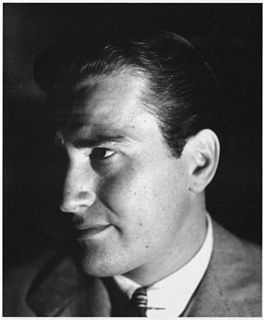A Quote by Adam McKay
Benito Mussolini created the word 'fascism.' He defined it as 'the merging of the state and the corporation.' He also said a more accurate word would be 'corporatism.' This was the definition in Webster's up until 1987 when a corporation bought Webster's and changed it to exclude any mention of corporations.
Related Quotes
It cannot be said that the Constitution formed 'the people of the United States,' for all time, into a corporation. It does not speak of 'the people' as a corporation, but as individuals. A corporation does not describe itself as 'we,' nor as 'people,' nor as 'ourselves.' Nor does a corporation, in legal language, have any 'posterity.'
First of all, a giant corporation probably shouldn't be being hacked by teenagers. I put that on the corporation, not the teenagers. Teenagers are going to do what teenagers are going to do - rebelling. But if they're able to hack a big corporation, that seems like the corporation should be better at security.
Extroverts want us to have fun, because they assume we want what they want. And sometimes we do. But "fun" itself is a "bright" word, the kind of word that comes with flashing lights and an exclamation point! One of Merriam-Webster's definitions of "fun" is "violent or excited activity or argument." The very word makes me want to sit in a dimly lit room with lots of pillows-by myself.
A definition is nothing else but an explication of the meaning of a word, by words whose meaning is already known. Hence it is evident that every word cannot be defined; for the definition must consist of words; and there could be no definition, if there were not words previously understood without definition.
When an industry matures, it means it's not advancing, and of course the jobs go overseas. That's the obligation of the multi-national corporation: to put the factory where it can make the widget as cheap as possible. Don't get angry when a corporation does that; we've all bought into this concept. We live in a capitalistic society.
In Milly Barranger, Margaret Webster has found the perfect biographer. In Margaret Webster, Milly Barranger has found her perfect subject. She brings to vivid life a fascinating and important theater figure whose public and private lives were of equal interest. In this carefully researched book, Webster's colleagues, lovers, and friends shine as brightly as she did. I wish she were here to read it.
Corporations did not achieve the scale we normally associate with them until the 1880s; but it's still hard to imagine that Abraham Lincoln would offered much in the way of determined opposition. William Herndon said that they always thanked the Lord when a corporation came knocking at their office door to hire them.






































